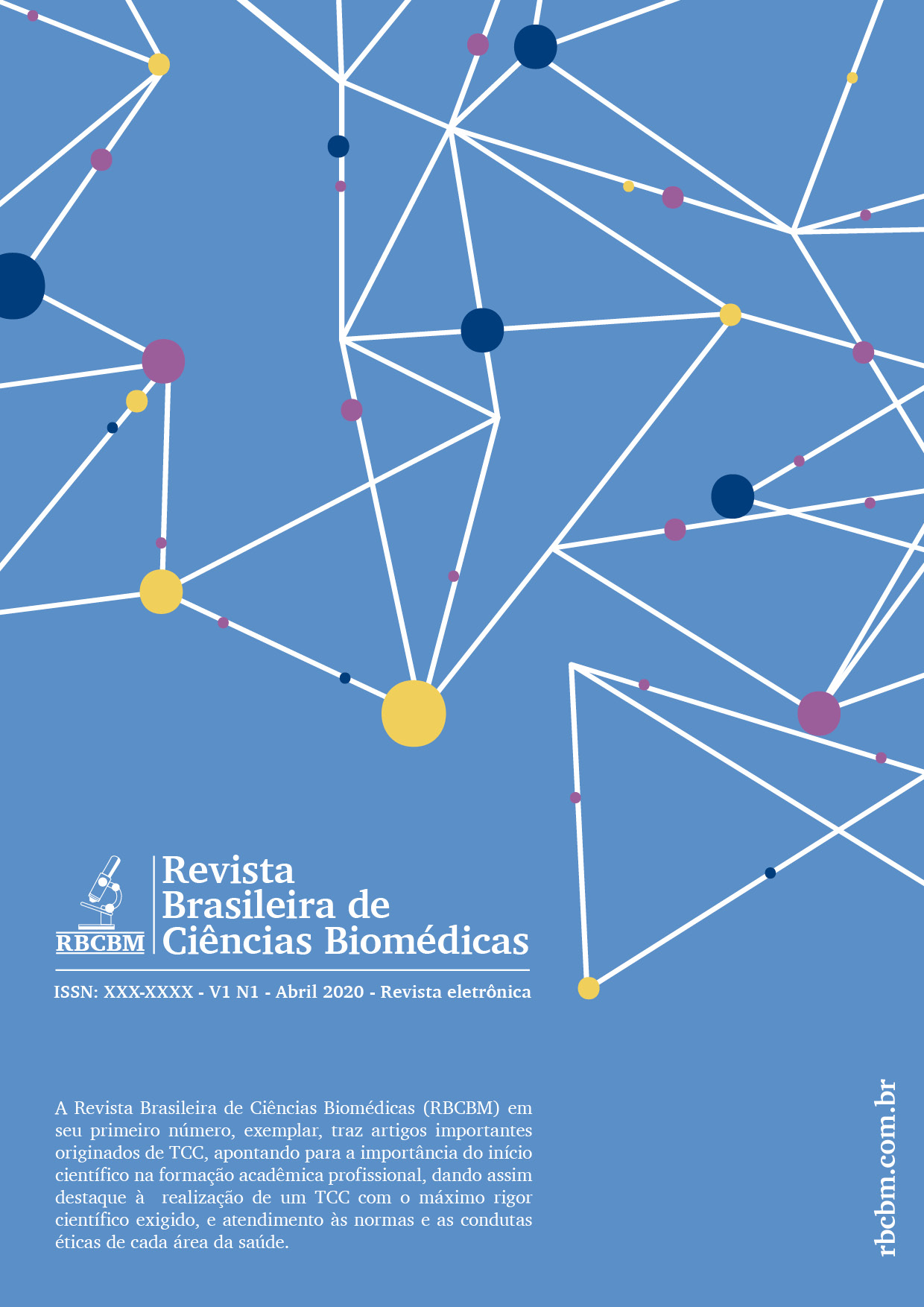Drug-related problems: An observational study at an Integrated Health Center
Conteúdo do artigo principal
Resumo
Failure in drug therapy can cause damage to the patient's health, becoming a real public health problem. The aim of this study was to evaluate a prevalence of DRP in patients of the Integrated Health Center of the University Anhembi Morumbi, São Paulo, Brazil. Medical records of twenty-eight patients were assessed using the Dáder Method from March to September 2019. Gender, age, weight, height, lifestyle and drug therapy were used to profile these patients. The highest concentration of patients aged 54 to 78 years old and the gender profile was 85.2% female and 14.8% male. The proportional ratio was verified when evaluating the profiles of the patients with some report of DRP being, 78.6% female and 21.4% male. The greatest number of prescriptions were observed in neurology and rheumatology, being 50.0% prescriptions of neurology and 32.0% of rheumatology. The specialties with more prescriptions with any identified DRP, with 21.4% were neurology and rheumatology. The DRP1 was the most recurrent in the prescriptions evaluated, followed by DRP5 and DRP6, followed by general practitioner. Further studies are needed to assist in the development of new instruments for the classification and prevention of risks related to medicines, especially in places where there is no pharmacotherapeutic segment, an important practice in reducing medication errors
Detalhes do artigo

Este trabalho está licenciado sob uma licença Creative Commons Attribution-NonCommercial-NoDerivatives 4.0 International License.
Declaração de Direito Autoral - Proposta de Política para Periódicos de Acesso Livre
Autores que publicam na Revista Brasileira de Ciências Biomédicas (RBCBM) concordam com os seguintes termos:
1 - Autores mantém os direitos autorais e concedem à revista o direito de primeira publicação, com o trabalho simultaneamente licenciado sob a Creative Commons Attribution License que permitindo o compartilhamento do trabalho com reconhecimento da autoria do trabalho e publicação inicial nesta revista.
2 - Autores têm autorização para assumir contratos adicionais separadamente, para distribuição não-exclusiva da versão do trabalho publicada nesta revista (ex.: publicar em repositório institucional ou como capítulo de livro), com reconhecimento de autoria e publicação inicial nesta revista.
3 - Autores têm permissão e são estimulados a publicar e distribuir seu trabalho online (ex.: em repositórios institucionais ou na sua página pessoal) a qualquer ponto antes ou durante o processo editorial, já que isso pode gerar alterações produtivas, bem como aumentar o impacto e a citação do trabalho publicado.
Este é um artigo de acesso aberto sob a licença CC- BY
Referências
2. Rodrigues, J. P. V. et al. Analysis of clinical pharmacist interventions in the neurology unit of a Brazilian tertiary teaching hospital. PloS One 14, e0210779 (2019).
3. Strand, L. M., Morley, P. C., Cipolle, R. J., Ramsey, R. & Lamsam, G. D. Drug-related problems: their structure and function. Dicp 24, 1093–1097 (1990).
4. Machuca, M., Fernández-Llimós, F. & Faus, M. J. Método Dáder. Guía Seguim. Farmacoter. Granada GIAF-UGR 189–194 (2003).
5. de Consenso, C. Tercer Consenso de Granada sobre problemas relacionados con medicamentos (PRM) y resultados negativos asociados a la medicación (RNM). Ars Pharm. Internet 48, 5–7 (2007).
6. Foppa, A. A., Chemello, C., Vargas-Peláez, C. M. & Farias, M. R. Medication therapy management service for patients with Parkinson’s disease: a before-and-after study. Neurol. Ther. 5, 85–99 (2016).
7. Hayes, B. D., Klein-Schwartz, W. & Barrueto Jr, F. Polypharmacy and the geriatric patient. Clin. Geriatr. Med. 23, 371–390 (2007).
8. Hanlon, J. T., Lindblad, C. I. & Gray, S. L. Can clinical pharmacy services have a positive impact on drug-related problems and health outcomes in community-based older adults? Am. J. Geriatr. Pharmacother. 2, 3–13 (2004).
9. Sánchez, T. et al. Results of the implementation of a pharmaceutical care programme for patients with multiple sclerosis. Eur J Hosp Pharm 21, 248–250 (2014).
10. Strand, L. M., Cipolle, R. J., Morley, P. C. & Frakes, M. J. The impact of pharmaceutical care practice on the practitioner and the patient in the ambulatory practice setting: twenty-five years of experience. Curr. Pharm. Des. 10, 3987–4001 (2004).
11. Losada-Camacho, M., Guerrero-Pabon, M. F., Garcia-Delgado, P. & Martínez-Martinez, F. Impact of a pharmaceutical care programme on health-related quality of life among women with epilepsy: a randomised controlled trial (IPHIWWE study). Health Qual. Life Outcomes 12, 162 (2014).
12. Hepler, C. D. & Strand, L. M. Opportunities and responsibilities in pharmaceutical care. Am. J. Hosp. Pharm. 47, 533–543 (1990).
13. Marques, L. A. M., Galduróz, J. C. F. & Noto, A. R. Pharmaceutical care to patients treated with antidepressants. Rev. Calid. Asist. 27, 55–64 (2012).
14. Araújo, PS, Costa, EA, Acurcio, FA, et al. Pharmaceutical care in Brazil’s primary health care. Revista de Saúde Pública, 51(Suppl. 2), 6s. Epub November 13, 2017.https://doi.org/10.11606/s1518-8787.2017051007109


